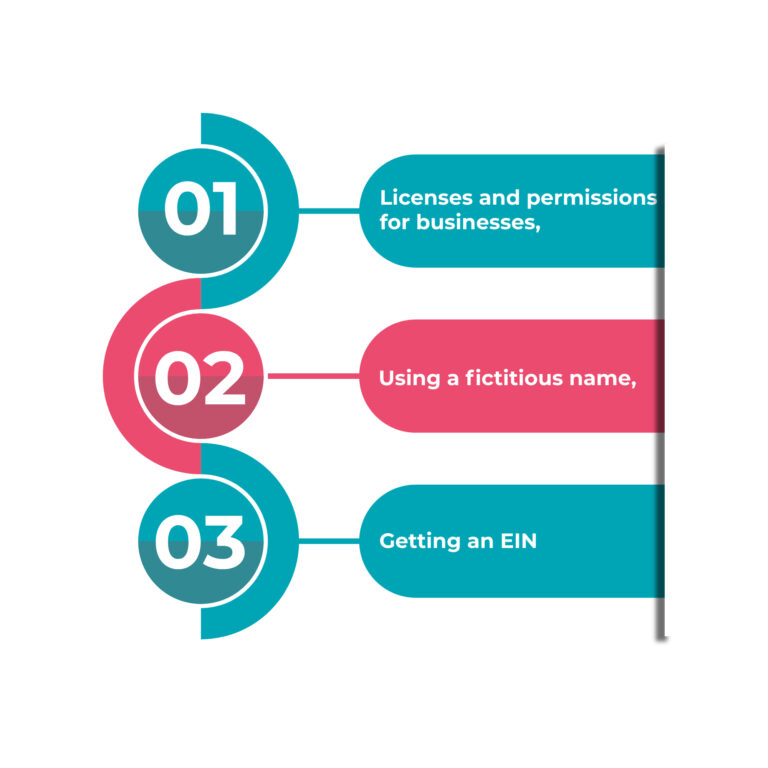What is Sole Proprietor?

A sole proprietorship is an unincorporated, unregistered business that is owned and operated by a single person without any separation between the business and the owner. In addition to being entitled to all earnings, the owner of a sole proprietorship bears all obligations, debts, and losses of the company.
What distinguishes a sole proprietor from an owner?
A person or a legal body that is a business’s legitimate proprietor might both be considered owners. One or more companies may be owned by a corporation, which is a legal entity.
The individual owner (proprietor) of a company operating as a sole proprietorship is referred to as the “sole proprietor.”
Starting a business as a Sole Proprietor?
Establishing a sole proprietorship is simple. To start this kind of business, no legal action is required. You instantly become a sole proprietor when you start doing business as the only owner. To be acknowledged as such, there is no official documentation filing or submission required at the federal, state, or local levels.

Getting an EIN
If you want to file tax returns for pension plans, file excise taxes (such as those on alcohol, tobacco, and weapons), or have workers, you must have an EIN, also known as a Federal Employer Identification Number or FEIN.
You can apply for an Employer Identification Number (EIN) online or by submitting IRS Form SS-4.
Licenses and permissions for businesses
It is crucial to remember that you might need to apply for business and/or occupancy licenses and permits, depending on where you operate and the nature of your company. In certain jurisdictions, the proprietor of a business must first obtain the appropriate business license before the business can start up.
Speak to your county clerk to learn more about the requirements in your area. You should be able to get the necessary forms from the county clerk and get answers to any queries you may have.
Using a fictitious name
Most cities will ask you to register a DBA (“doing business as”) name if your sole proprietorship business will be using a name other than the owner’s name. By submitting a DBA, you disclose to the public and the local government the identity of the business’s owner and that it is operating under an assumed name.
It can be tough to decide between your real name and a made-up one. Using your name can be a powerful marketing technique if you’re a well-known and respected figure in your industry or region.
Benefits of operating as a sole proprietor
Having a sole proprietorship has several advantages, two of which are less paperwork and less startup expenditures. Not to mention how simple it is to maintain. It’s actually the easiest and least expensive business kind to start, according to the SBA.

Let’s examine a few more significant benefits.
Taxes: Your firm does not require its taxes. You just treat whatever profit you make as personal income.
However, as a single proprietorship, there are two crucial tax factors to take into account:
- Whether or not you take the money out of your business, you will still be subject to taxes on all gains.
- Together with a Schedule SE about your self-employment taxes, you must complete a Schedule C report outlining your earnings and losses.
Maintenance: Compared to a registered firm, a single proprietorship is simpler to establish and run. You can simply run your business with little legal costs and no continuing restrictions from the state. This is true even if you’re operating under a false name, commonly known as a DBA (doing business as).
Control: The business is entirely within the sole proprietor’s authority for decision-making. Since you are the only owner of the company and have no partners, you are free to manage it any way you see fit.

Drawbacks of being a solo proprietor
When you are a lone proprietor, there are a few major drawbacks to take into account. Take into account these possible disadvantages before deciding on the ideal business structure for your company.
Liability: Being personally responsible for all business debts is one of the main drawbacks of operating as a lone owner. The assets of the firm and the assets of the owner are the same.
If the business’s assets are insufficient to pay off its debts, personal responsibility enables creditors to seize your personal belongings. Similarly, to pay off your debts, your creditors may seize assets owned by your company.
Funding: Since a single owner cannot sell company stock, investors may be hesitant to invest, making money raising difficult for them. Bank loans might be difficult to repay since the owner is solely responsible for making loan repayments if the firm fails.


Long-term survival: Another benefit is that in most cases, a sole proprietorship will continue even if the owner passes away or becomes incapable. A sole proprietorship needs to be managed by its owner, whereas a corporation is legally a separate entity from its owners and is subject to takeover.
Lack of support: Although having total control is advantageous, the success or failure of the business rests solely on the shoulders of the solitary proprietor. Due to the additional stress and strain, this might be a major drawback of being a lone proprietor.
Given that you bear personal liability for the business’s debts, you ought to think about the possibility of legal action against the company. For instance, the company may be held liable for injuries sustained by patrons on the property or as a result of goods the company sells. If lawsuits are a possibility, you can reduce your risk by getting business insurance (product liability, general liability, or malpractice, if needed).
How to Establish a Sole Proprietorship
Starting a business as a solo owner is not too difficult. This is due to the absence of the customary legal obstacles that come with other kinds of corporate entities. Establishing oneself as the entity’s owner and getting things going are typically all that’s needed to get it started. There are specific actions you can take to formally start your sole proprietorship, depending on where you live.

- Obtain your business license and all necessary permissions. In many states, you must apply for both permits and licenses (business or occupancy). To find out if you require any further papers to start your business, contact the state or county clerk.
- If your state requires it, you might have to register your company using its Doing Business As name. If this isn’t the case, you can go by an assumed name, which is typically just your own. Remember that operating a sole proprietorship under your name may have legal repercussions.
- Request and receive an EIN. If you plan to submit tax returns or have any workers, this is a crucial and required step. If you are not eligible for this, you may use your own SSN. In any case, consulting a tax professional is usually a good idea to ensure that you don’t make any mistakes.
- An EIN from the IRS is required if you intend to hire staff. You must apply for a sales tax license from your state if you plan to sell taxable goods.
Frequently Asked Questions (FAQs)
Generally speaking, you have to establish your firm to become a single owner. The choice of a company name is beneficial. You might have to apply to your city, county, or state for permission or license, depending on your type of business and local laws. You will require an employee identification number from the IRS if you intend to hire staff. You must apply for a sales tax license from your state if you plan to sell taxable goods.
Indeed, being a sole owner and being self-employed are the same thing. A lone proprietor is self-employed since they don’t have an employer or boss.
When filing taxes as a sole proprietor, you must complete Schedule C, which details your business’s earnings and losses, as well as normal tax Form 1040 for individual taxes. Your tax liability will be determined by adding up the income reported on Form 1040 and Schedule C. Additional paperwork needs to be filled out if you have staff.
That is contingent upon your business. Small enterprises with little profit margin and minimal risk are best suited for single proprietorships. These companies often serve a select, committed clientele rather than a large consumer base. Often, sole proprietorships begin as pastimes that develop into enterprises.
A sole proprietorship must file articles of formation with their state secretary to convert to an LLC. To maintain your firm name, you will also need to refile your DBA or do business as. Finally, you must apply for an EIN from the IRS.
